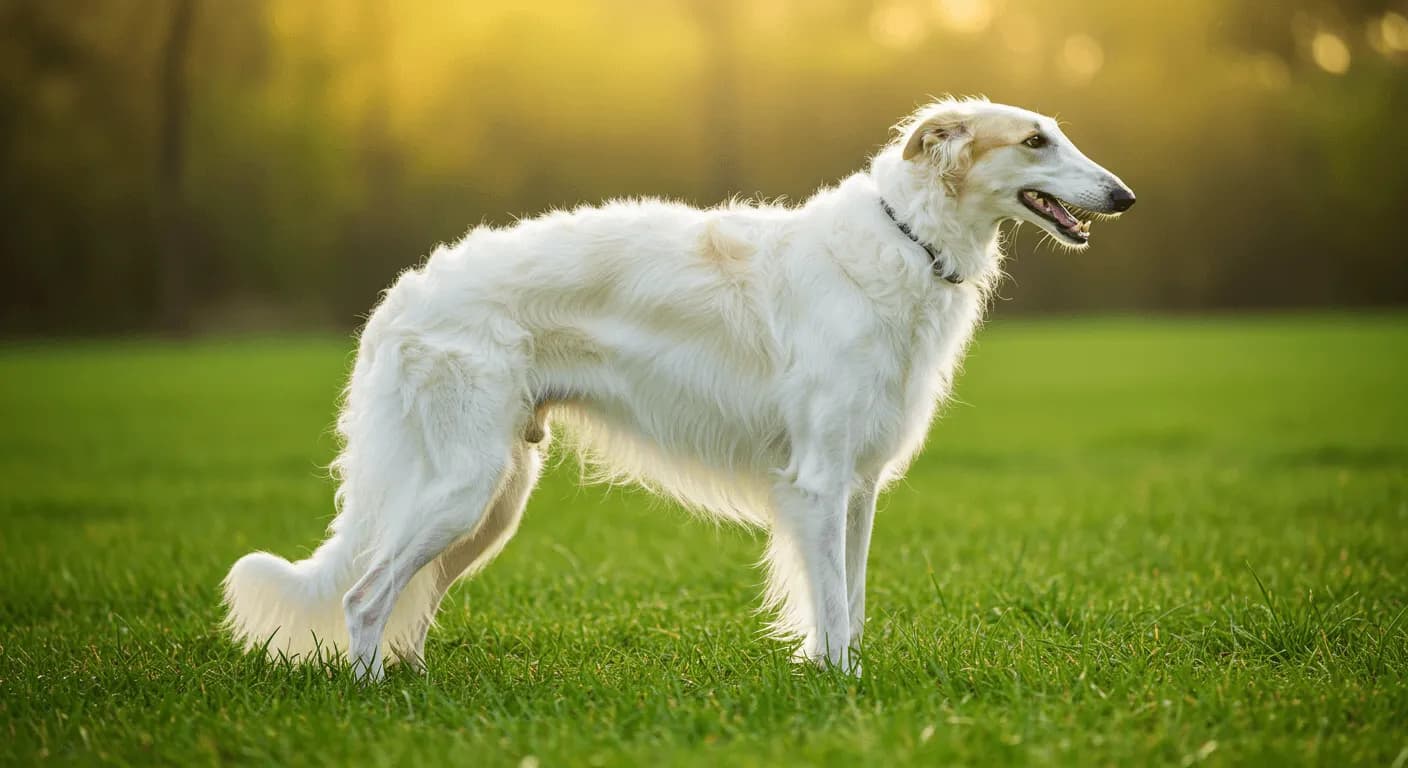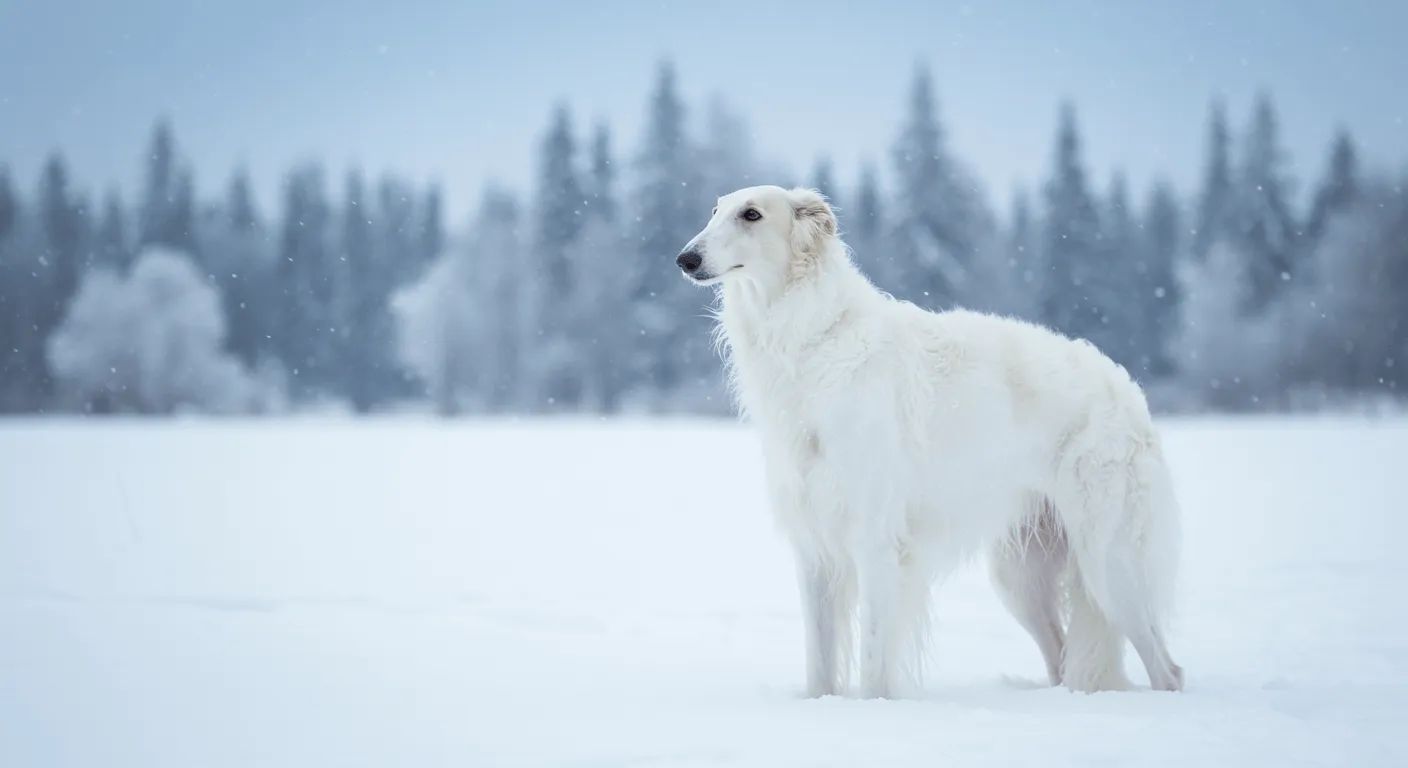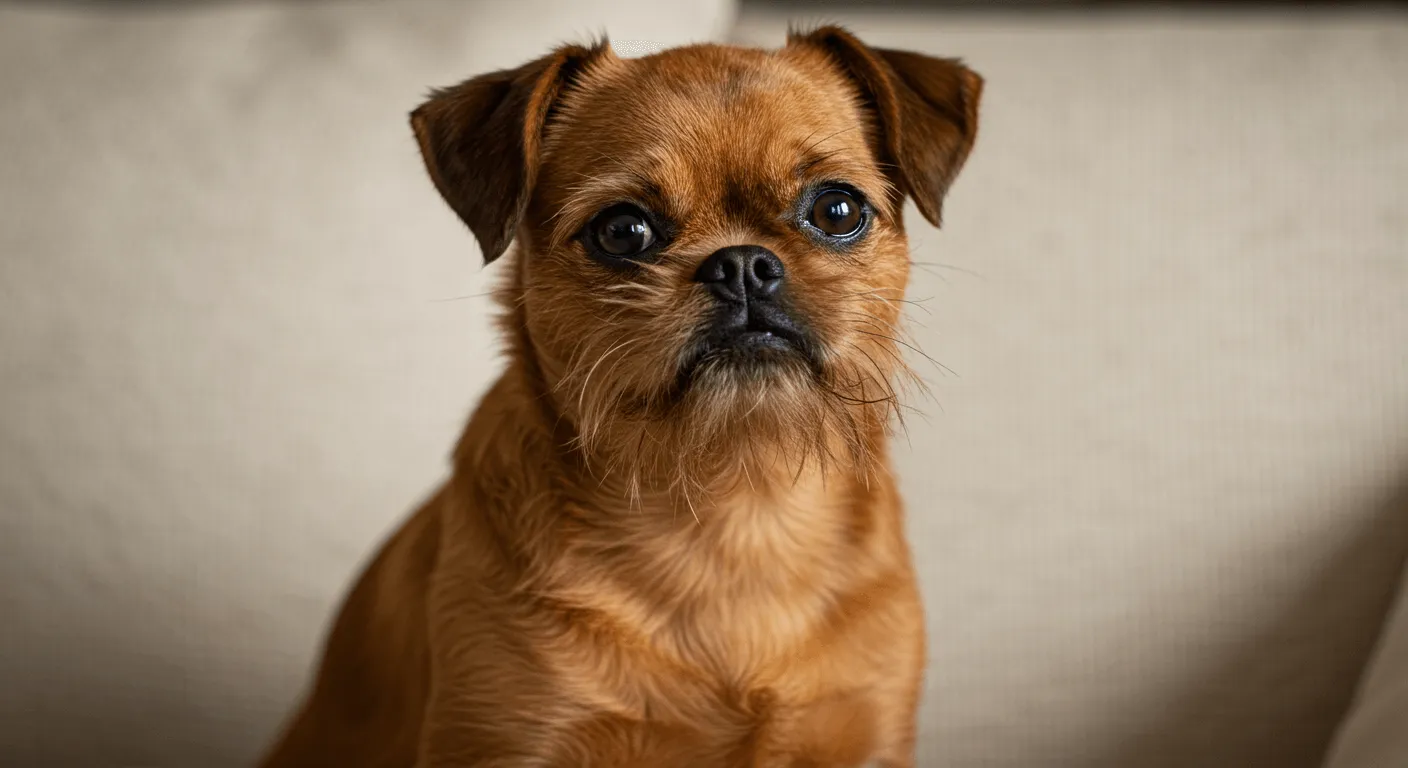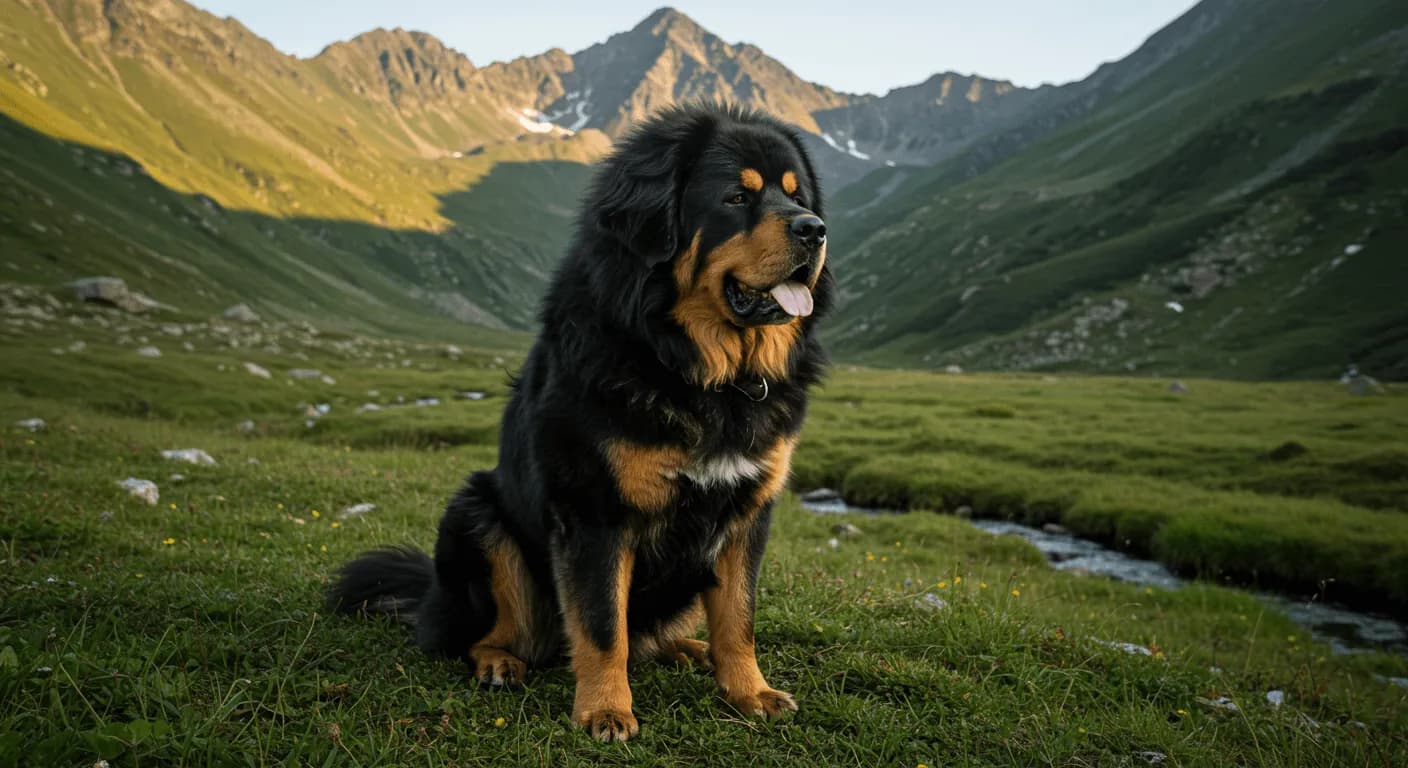The Borzoi, also known as the Russian Wolfhound, is a graceful and aristocratic breed with a distinctive, slender silhouette and a long, silky coat. Originally bred by Russian nobility for hunting wolves and other game, the Borzoi combines refined beauty with athleticism and quiet dignity. If you’re wondering whether a Borzoi is the right dog for you, it's important to explore their temperament, lifestyle needs, and care requirements to make an informed decision.
Is a Borzoi right for you? That depends on your living situation, daily routine, and personal expectations from a canine companion. This article will walk you through everything you need to know about choosing a Borzoi—from personality traits to grooming needs—to help you decide if they’re a good match for your household.
Temperament and Personality
Borzoi are known for their calm, elegant demeanor. These dogs are typically:
- Gentle and affectionate, especially with their family members.
- Reserved and sometimes aloof with strangers, but rarely aggressive.
- Independent thinkers, which can sometimes come off as stubborn.
While they exude peace and refinement indoors, Borzoi carry a high prey drive, owing to their sighthound heritage. They were historically bred to chase and take down fast-moving game, so they may instinctively want to pursue small animals.
In terms of social tendencies, they are generally quiet and docile. Borzoi do well in calm environments and may not enjoy noisy, chaotic households. They are not overly demanding of attention but do enjoy companionship and quiet affection.
Energy-wise, they are moderate. They enjoy daily walks and high-speed runs in safe, enclosed areas, but are also content lounging for much of the day, often referred to as “couch potatoes with bursts of speed.”
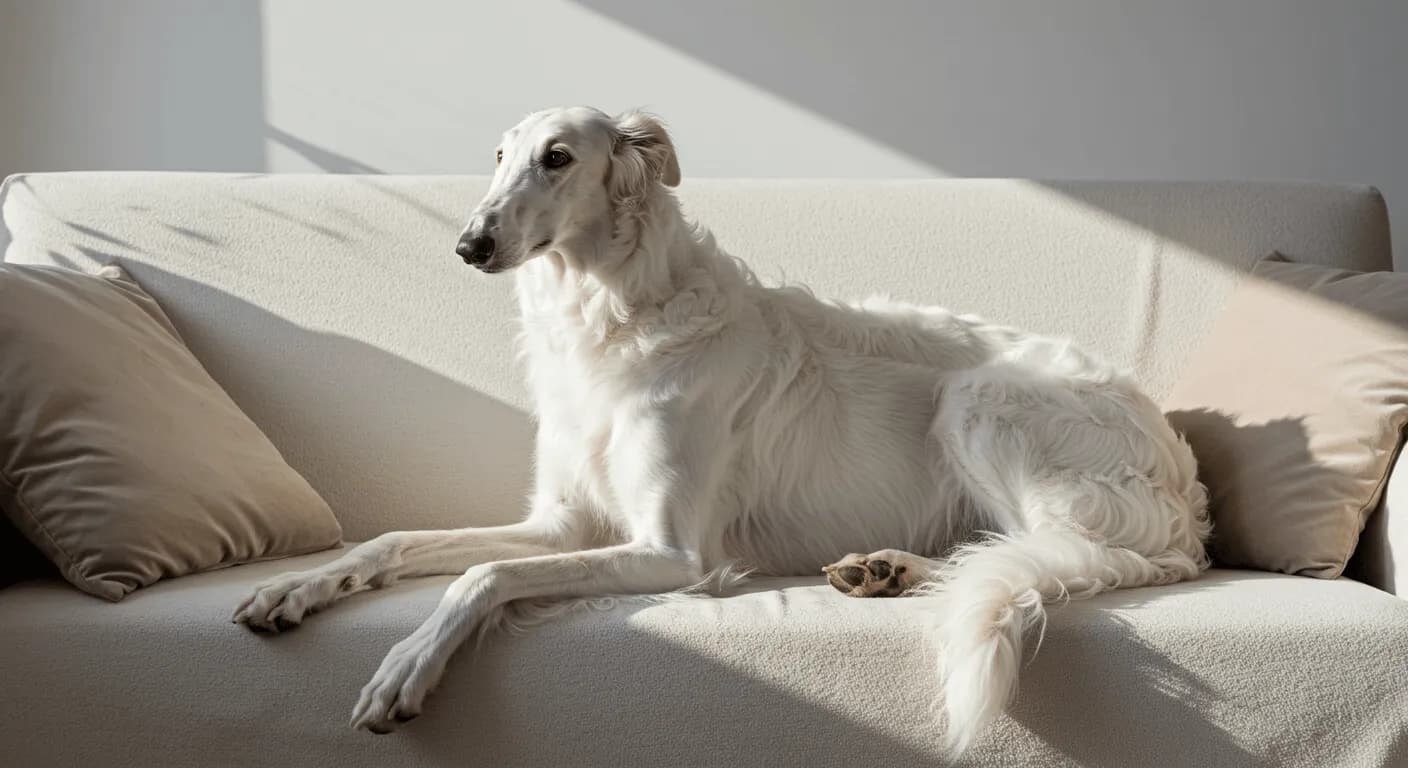
Pros and Cons for Different People
Borzoi can make excellent companions, but they don’t suit every household equally. Depending on your lifestyle, here's how owning a Borzoi might work for you.
1. Families with Children
- Borzoi are usually very gentle with well-behaved older children.
- They may not appreciate rough or overly enthusiastic interaction, especially from younger kids.
- Supervision is recommended during child-dog interaction to ensure mutual respect.
2. Single Individuals
- A Borzoi can be a perfect companion for singles seeking a quiet but affectionate pet.
- They are often content with a low-key lifestyle supplemented by regular outdoor time.
- Keep in mind their strong prey drive which can complicate urban walks.
3. Elderly Owners
- Their calm demeanor and relatively low exercise needs make them a suitable option for some seniors.
- However, Borzoi are large dogs (often over 100 pounds), and handling them on a leash could be difficult without experience.
4. Active vs. Sedentary Lifestyles
- Borzoi thrive with regular, moderate exercise and love enclosed runs.
- Ideal for those who enjoy leisurely strolls and spacious yards, less suited for very active owners looking for a hiking or jogging companion.
- Their bursts of exercise are followed by long periods of rest.
Suitability Factors
Here’s how Borzoi stack up against some of the most common pet compatibility questions.
- Are Borzoi good with kids? Yes, especially with older children who interact respectfully. Not ideal for toddlers.
- Are Borzoi good with other dogs? Generally yes, particularly if raised with them. They are not aggressive with other dogs but may chase smaller, fast-moving breeds.
- Are Borzoi good with cats? Not typically. Their prey drive can make them dangerous around small animals unless well-socialized from puppyhood.
- Are Borzoi good guard dogs? No. They are not territorial or aggressive. Their quiet nature makes them poor watchdogs.
- Are Borzoi good for apartments? Possibly, if you commit to daily walks and provide mental stimulation. They don't require a large indoor space but thrive in quiet environments.
- Do Borzoi need a yard? A secure, fenced yard is ideal for off-leash running. Their need for speed is best met in safe, enclosed areas.
- Is a Borzoi good for first-time owners? Possibly, but only if the owner does ample research. Their grooming, training style, and prey drive require a dedicated and patient caretaker.
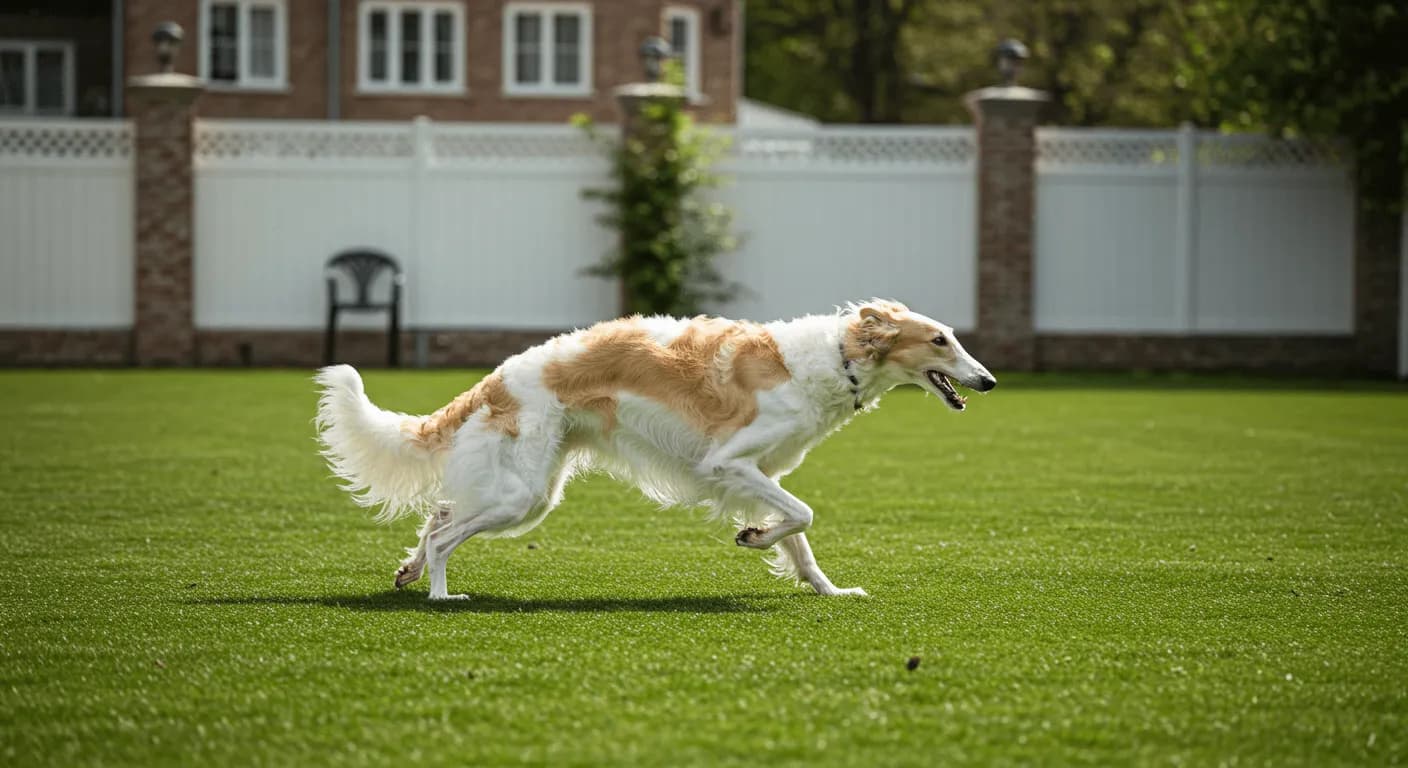
Care Requirements
Caring for a Borzoi involves a mix of physical, emotional, and grooming needs. Here’s what you need to know.
Exercise Needs
- Daily walks and chances to run are crucial.
- Off-leash running should only occur in secure, fenced spaces.
- Despite their hunting background, they are not hyperactive indoors.
Grooming Requirements
- Their long, silky coat requires weekly brushing to avoid tangles and mats.
- While they shed seasonally, it’s not excessive if regularly groomed.
- Borzoi are low droolers, maintaining a clean and tidy presence.
Training Considerations
- Intelligent but independent. Patience and consistency are essential.
- Positive reinforcement works best; they do not respond well to harsh correction.
- They rarely bark unless provoked, making them excellent in noise-sensitive environments.
Can Borzoi Live Outside?
- Not ideal. Their elegant coat is not designed for extreme weather.
- They value human companionship and will not thrive when isolated.
Can Borzoi Be Left Alone?
- They can tolerate alone time, especially if they receive attention and stimulation when you're home.
- Separation anxiety is less common than in some breeds, but you should avoid long, frequent absences.
Are Borzoi High Maintenance?
- Moderate. Grooming is manageable with regular upkeep.
- Their temperament requires a gentle, knowledgeable approach particularly during training.
- Their prey drive and exercise needs are the most demanding aspects.
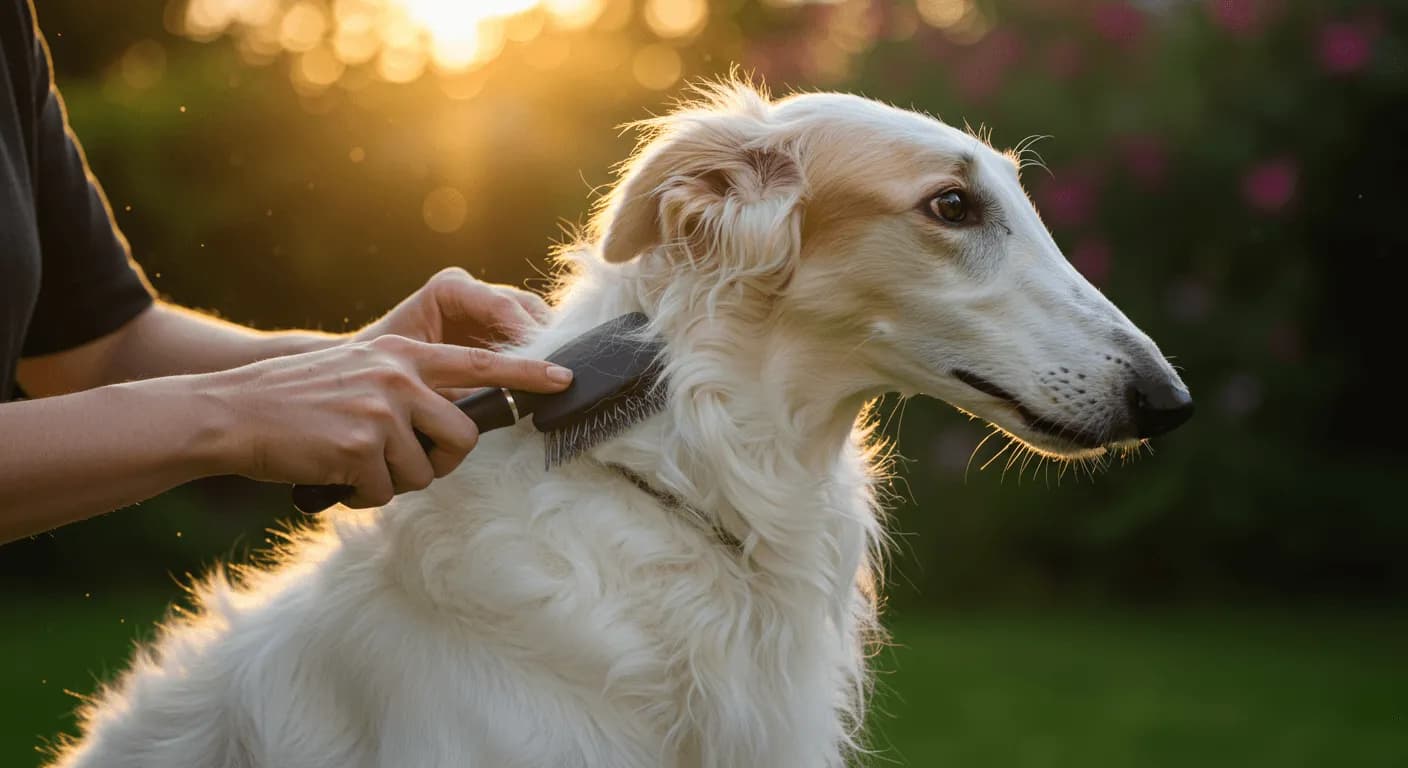
Health and Lifespan
Like all dog breeds, Borzoi have specific health concerns potential owners should keep in mind.
Common Health Issues
- Bloat (gastric torsion) is a big concern due to their deep chest. Avoid exercising right after meals.
- Osteosarcoma (bone cancer) and heart conditions are also seen within the breed.
- Dental care is crucial—regular teeth cleaning is recommended.
Borzoi Life Expectancy
- The average lifespan is 10 to 12 years.
- With proper care, it's not unusual for Borzoi to reach their teens.
Are Borzoi Hypoallergenic?
- No. Despite their elegant coats, Borzoi are not hypoallergenic, and they do shed.
- Regular grooming helps reduce allergens, but sensitive households should consider this factor.
Cost and Legal Considerations
How Much Does a Borzoi Cost?
The price of a Borzoi puppy can vary depending on breeder reputation, lineage, and location. Expect to invest:
- $1,500 to $3,000+ for a well-bred puppy
- Additional costs for spaying/neutering, vaccinations, and early care ($500–1,000 annually)
- Grooming tools, crate, training classes, food, and vet visits add to ongoing expenses
Adoption from rescue organizations can be more affordable, often under $500, and may include initial vet care.
Borzoi Legal Restrictions
Borzoi are not commonly included in breed-specific legislation. However:
- Some cities or housing associations may have size restrictions.
- Always check local ordinances or apartment pet policies before bringing one home.
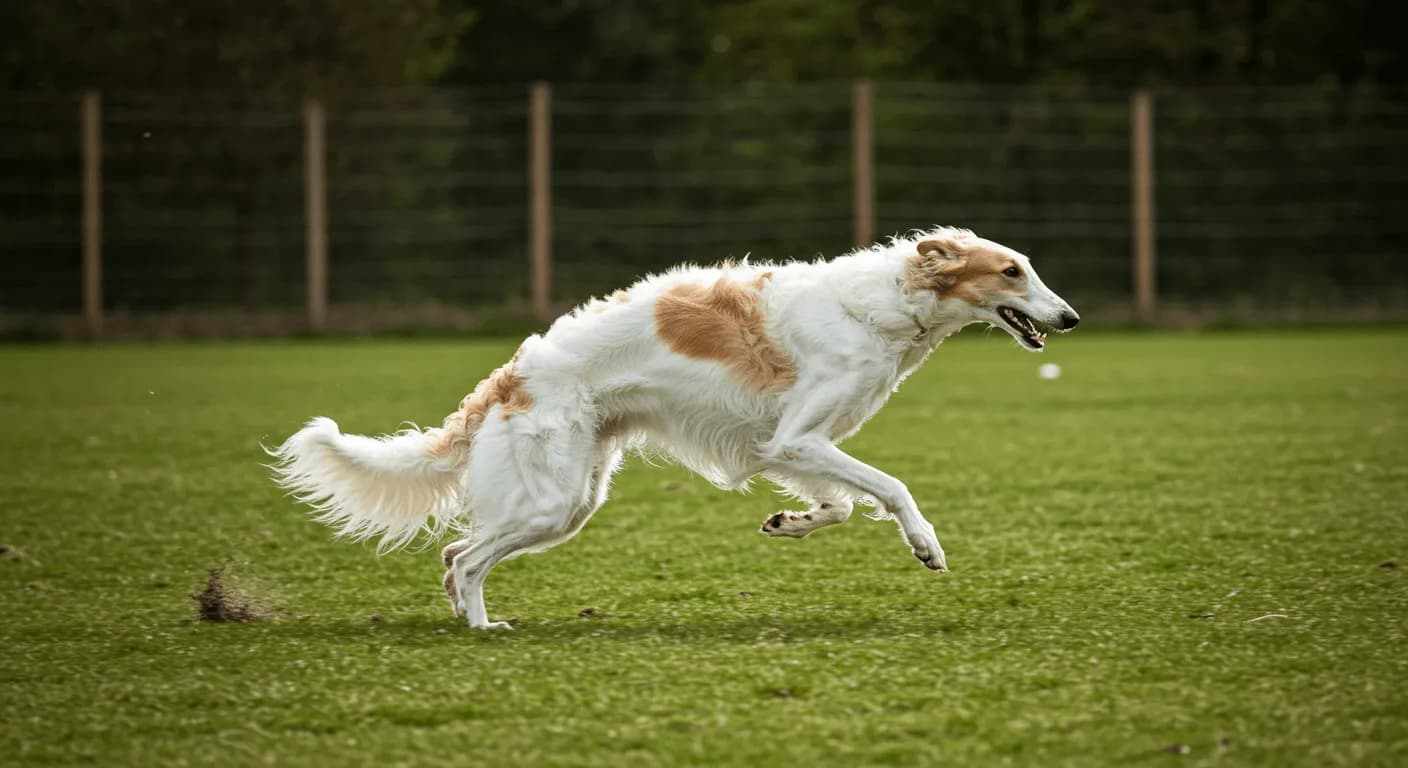
Their long noses enhance their already superb eyesight—a trait that makes them exceptional sighthounds with a sharp prey drive.
Despite their size, Borzoi are surprisingly quiet indoors and are known to rarely bark, contributing to their calm household presence.
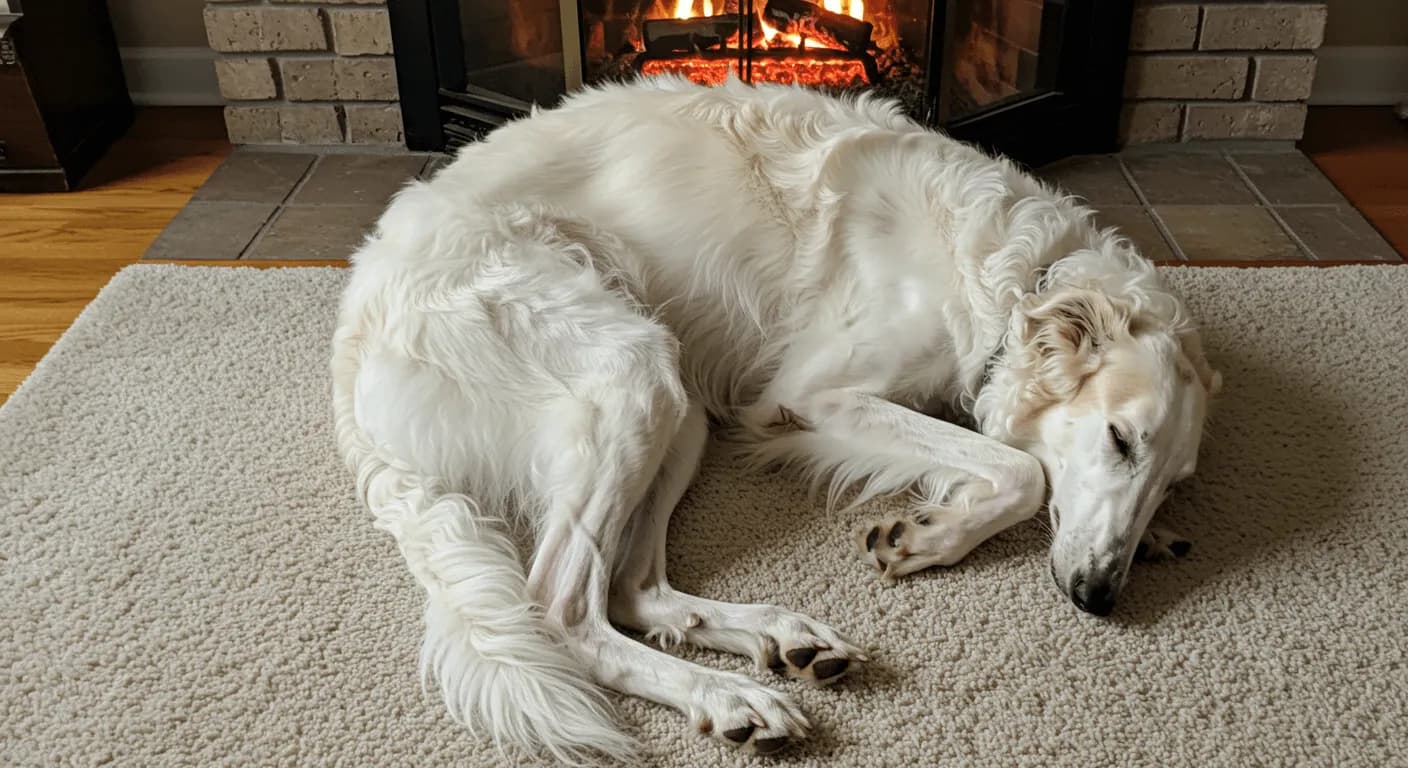
While Borzoi are not typically suited for highly active families or homes with small pets, they excel in environments where their refined nature and independent spirit can shine. Their grooming needs, exercise preferences, and training style require a committed owner who values subtle intelligence over overt obedience.
If you’re seeking a dog with aristocratic charm, minimal barking, and a laid-back indoor presence—balanced by bursts of outdoor speed—the Borzoi may very well be a perfect match. With the right home, they offer a deeply rewarding and elegant canine friendship.

